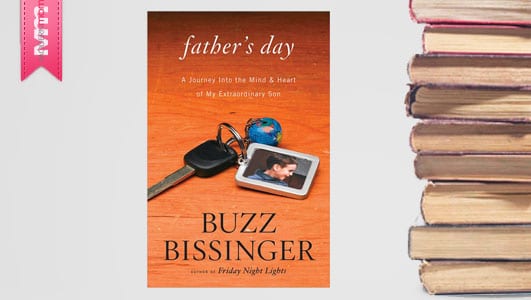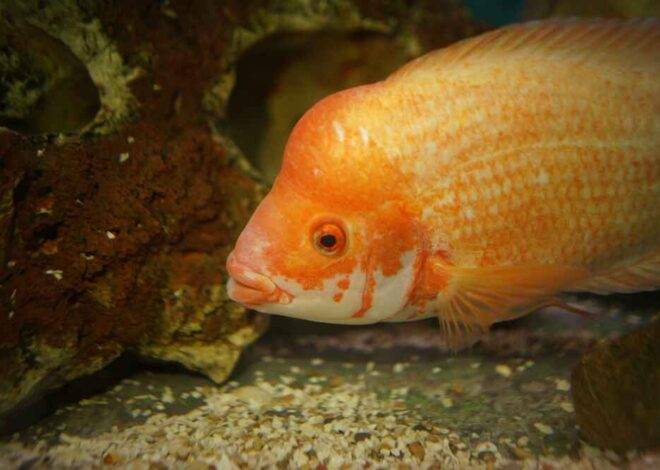Our ModernMom Book Club is a way for our readers to express their thoughts and ideas on things they’ve read, sharing their insights with our community of moms. Join the conversation, and tell us what you thought about this book in the comment section below!
Buzz Bissinger doesn’t care what you think about his parenting. Honestly. He doesn’t. That’s what makes his new memoir, Father’s Day: A Journey into the Mind & Heart of My Extraordinary Son compellingly different from other parenting books.
Bissinger’s candor about his failings and how he responded poorly to his son Zach’s “serious intellectual deficits” are bracingly real. He’s not trying to impress readers with how empathetic he was or what a fabulous, patient father he can be. He’s laying all the ugly stuff out there. He isn’t concerned if you judge him because he’s already done a number on himself as far as condemnatory judgment is concerned.
Bissinger, the author of the widely acclaimed Friday Night Lights, has three sons, adult twins Gerry and Zach, and the college-aged Caleb. However Father’s Day is focused on Zach, specifically on the cross-country trip Bissinger took with Zach in the summer of 2007 in an attempt to get to know Zach who — despite the fact that he has child-like comprehension skills, counts on his fingers and doesn’t understand much of what he reads – still remains emotionally and intellectually out of reach to his father as much as Bissinger wished it were otherwise.
There was a three-minute gap between the birth of Bissinger’s son Gerry and his son Zach, born three-and-a-half months premature in 1983 and weighing little more than two pounds apiece. Gerry, who was born first, had stronger lungs than his twin brother Zach and, as Bissinger said, the three minutes between Gerry and Zach’s births made all the difference in whether Zach’s brain got the oxygen it required. It didn’t. Zach was hospitalized for his first seven and half months on the planet.
The legacy of Zach’s birth is something which continues to rattle and anger Bissinger, and had — prior to the road trip with Zach, which he recorded so he could quote their conversations verbatim – caused Bissinger to mentally check out to some degree when he was with Zach. “It is the most terrible pain of my life,” he said. “As much as I try to engage Zach, figure out how to make the flower germinate because there is a seed, I also run. I run out of guilt. I run because he was robbed and I feel I was robbed. I run because of my shame. I am not proud to feel or say this. But I think these things, not all the time, but too many times, which only increases the cycle of my shame. This is my child. How can I look at him this way?”
The book — which is sprinkled with anecdotes about Bissinger’s relationship with his parents and his own career highs and lows, as well as Bissinger’s admission that he has anxiety, depression and “mild bipolarity” — reads like the script for a buddy road trip movie, as Bissinger drove them to an eclectic assortment places to which he and Zach had connections and Bissinger frequently lost his cool when he foolishly didn’t listen to Zach’s suggestions on which roads to take because Zach not only has an unbelievable memory but is something of a human GPS.
Motivated to take this odyssey by fond recollections of road trips with his father, Bissinger tried to capture lightning in a bottle and reconstruct those precious father-son moments with Zach. But Bissinger’s attempts to connect frequently left him feeling frustrated. For example, what he thought would be the crowning moment of the trip, a night in Las Vegas, fell apart because Zach was overcome and disinterested. Bissinger was angry and disappointed with his son at first, then he turned the fury on himself. It was at a Cirque de Soleil show when Bissinger realized that what he’d thought would be one of the best nights of his son’s life was crumbling. “Tears fill my eyes, as I face the fact that, all night long, I have done nothing but push my son beyond all limits of what is reasonable and right,” he said. “. . . Everything I have learned from and about him on the trip cannot eradicate that so much will always be overwhelming and incomprehensible to him.”
Among the hardest parts to read were those where Bissinger tried to speak candidly with Zach about his disabilities, a subject which Bissinger hadn’t really thoroughly discussed with Zach in an attempt to protect him. The scene where they returned to a school where Zach had been treated abysmally — yet Zach didn’t realize he’d been treated badly — was particularly agonizing for Bissinger because it brought him back to time and place in his life when he felt unable to adequately help his child.
“There is no rose-colored ending to any of this,” Bissinger wrote unflinchingly. “There is no pretty little package with a tidy bow. [Zach] will never drive a car. He will never marry. He will never have children. I still fear for his future . . . He is not the child I wanted. But he is no longer a child anyway. He is a man, the most fearless I have ever known, friendly, funny, freaky, unfathomable, forgiving, fantastic, restoring the faith of a father in all that can be.”
The portrait Bissinger painted, of lugging along with them the heavy iron chains of his paternal guilt, a bag full of family photos and haunting memories, did eventually offer a glimmer of, not hope necessarily, but poignancy in the end. At the conclusion of the trip when his son Gerry joined the duo, Bissinger found himself moved by his sons’ camaraderie in spite of how differently their lives turned out. “Three minutes does define a life, but never in the way I had always imagined,” he said. “So many times I never thought I would get there. But we are a family, all different, sometimes divided, sometimes in pain, but unconquerable.”





